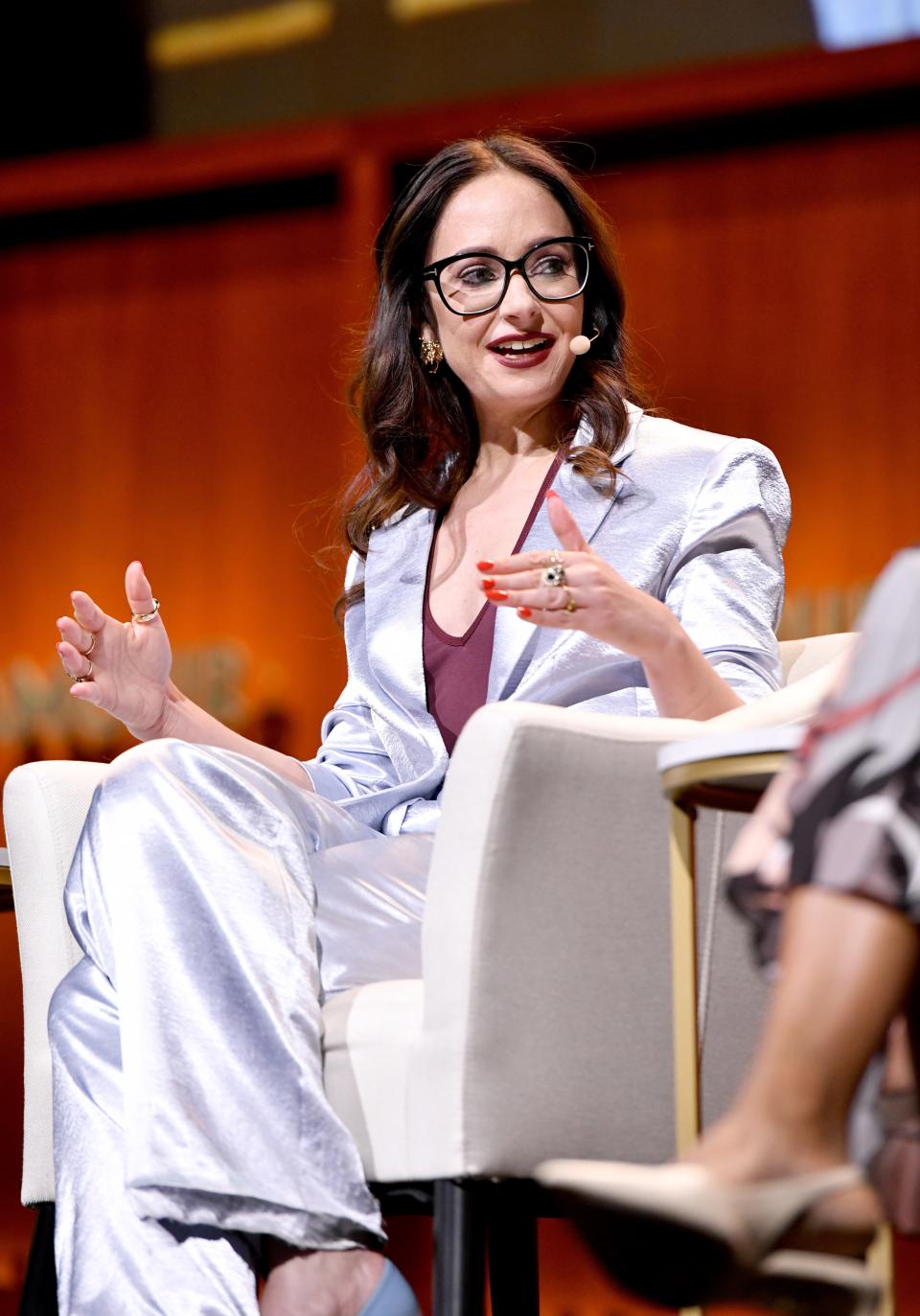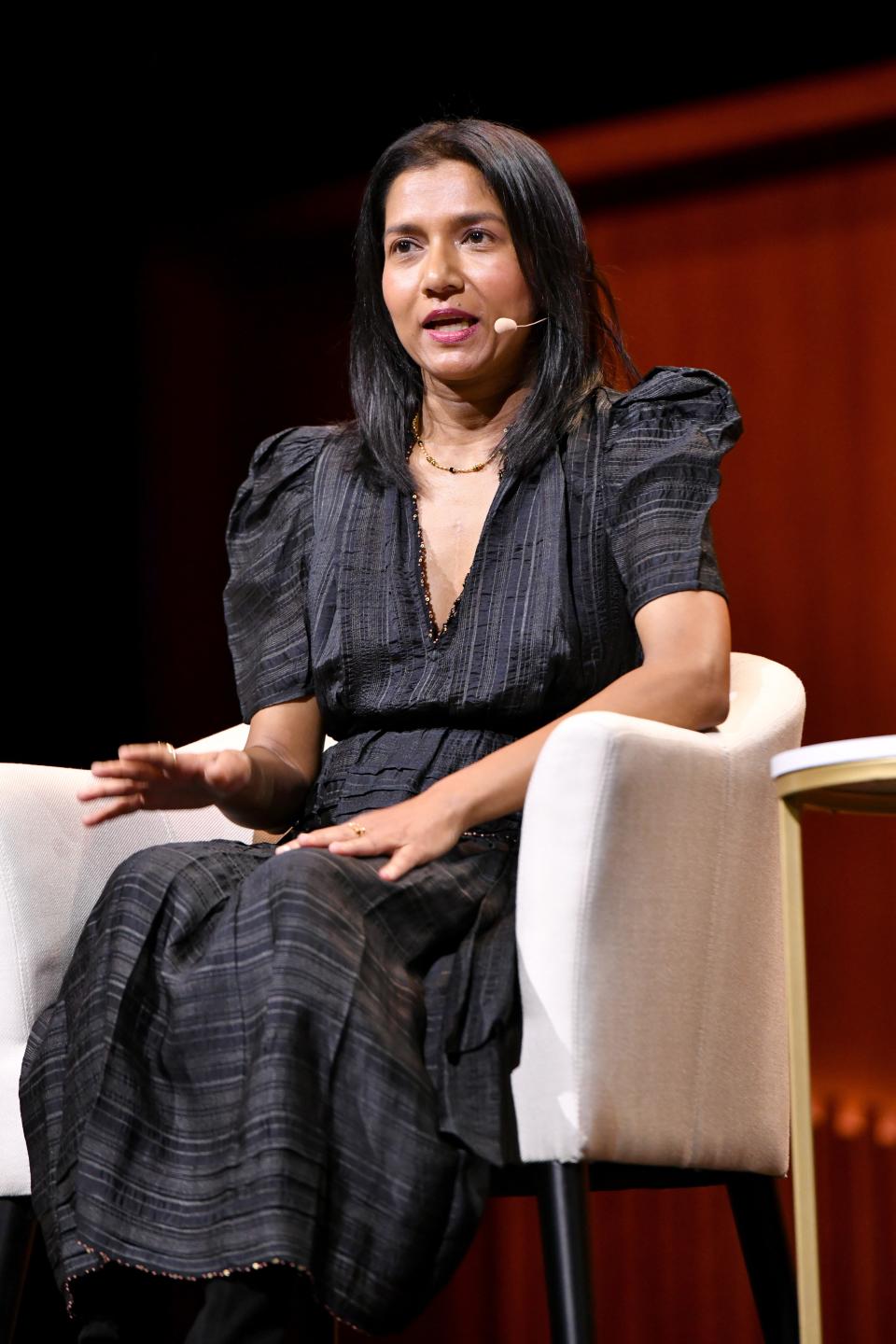Two Years After #MeToo, What’s Changed—And Who’s Changing It?
This month the newest iteration of #MeToo movement turns two. In November 2017, twin Weinstein investigations in the New York Times and The New Yorker exposed pervasive sexual harassment in Hollywood. In the time since, #MeToo has become even more—a catchphrase, a caution, and a reminder that the work it set out to do isn't done.
At Glamour's 2019 Women of the Year Summit in New York, CNN anchor Zain Asher sat down with three women on the front lines of the movement to take stock of it now—Carrie Goldberg, a Brooklyn attorney whose memoir Nobody's Victim: Fighting Psychos, Stalkers, Pervs, and Trolls is available now; Tanya Selvaratnam, author of the upcoming book Assume Nothing: A Memoir of Intimate Violence; and Megan Twohey, the investigative reporter whose investigation into Harvey Weinstein at the New York Times with partner Jodi Kantor won a Pultizer Prize, spawned a book (the transcendent She Said), and helped revitalize the #MeToo hashtag.
The women discussed the #MeToo movement—how it gained steam, how they each used their pain as a way to help ultimately empower others, and where to go from here.
For her first question, Zain Asher asked Meghan Twohey what her first question was to the women who were coming forward—whether she was interviewing A-list actors like Ashley Judd or Gwenyth Paltrow, or women like Laura Madden who had worked with Weinstein. Twohey, who had experience reporting on victims of sex crimes, said, "When asking women to open up about what was often the most painful experience in their lives…[I told them], 'We can't change what's happened to you in the past. But if you work with us, and we're able to publish the truth, we might be able to protect other people, and we might be able to turn your present pain into some sort of constructive public use.'"

Carrie Goldberg 2019 Glamour Women Of The Year Summit
Craig Barritt/Getty ImagesThe sense that sharing your story, however painful, will ultimately make real change is what attorney Carrie Goldberg touched on next. Speaking to her own feeling of a lack of agency after experiencing harassment, she decided to start her own law firm representing victims who've suffered sexual abuse and harassment. Over the last five and a half years, her firm has helped hundreds of people who "need orders of protection…or need to sue people like Harvey Weinstein."
Goldberg spoke about how she found strength in helping other women, despite "coming from a place of pain." A similar sentiment was shared by author Tanya Selvaratnam, who said that the Summit was her first time telling her story in front of an audience. In regard to going public with abuse allegations against New York attorney general Eric Schneiderman, she said she felt "like I was damned if I did and damned if I didn't"—but ultimately, she knew she needed to come forward.

Tanya Selvaratnam 2019 Glamour Women Of The Year Summit
Craig Barritt/Getty ImagesSelvaratnam went on to say, "I don't want to overstate my experience. There are millions of women who suffer violence so much greater than what I did. But I hope that my story helps others spot it."
The conversation turned to where we go from here, with Asher stating, "The law does need to catch up with Me Too movements." Goldberg says she still believes "in the civil justice system and the idea that if you've been injured—and sexual assault is an injury—then you should be able to take the offender for everything they're worth."
Selvaratnam shared that "a good part about my story came out in that New York now has its first African American and first female elected attorney general." She added that she's grateful for all the people who encourage everyone to keep fighting.
The #MeToo movement went viral with a tweet. For advocates and survivors, it can feel like there's still a long way to go to make meaningful change—but as the women at the forefront discussed, societal change happens slowly, and it's happening right now, with every conversation, and every discussion.
Find out more about Glamour's 2019 Women of the Year here.
Originally Appeared on Glamour

